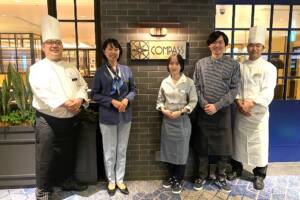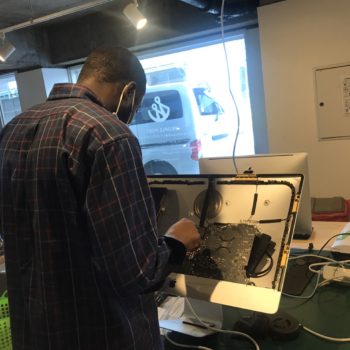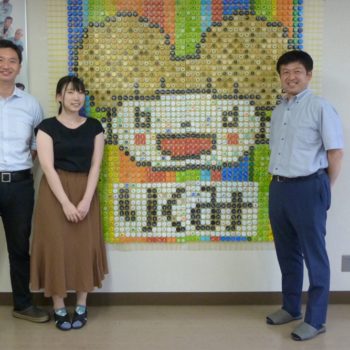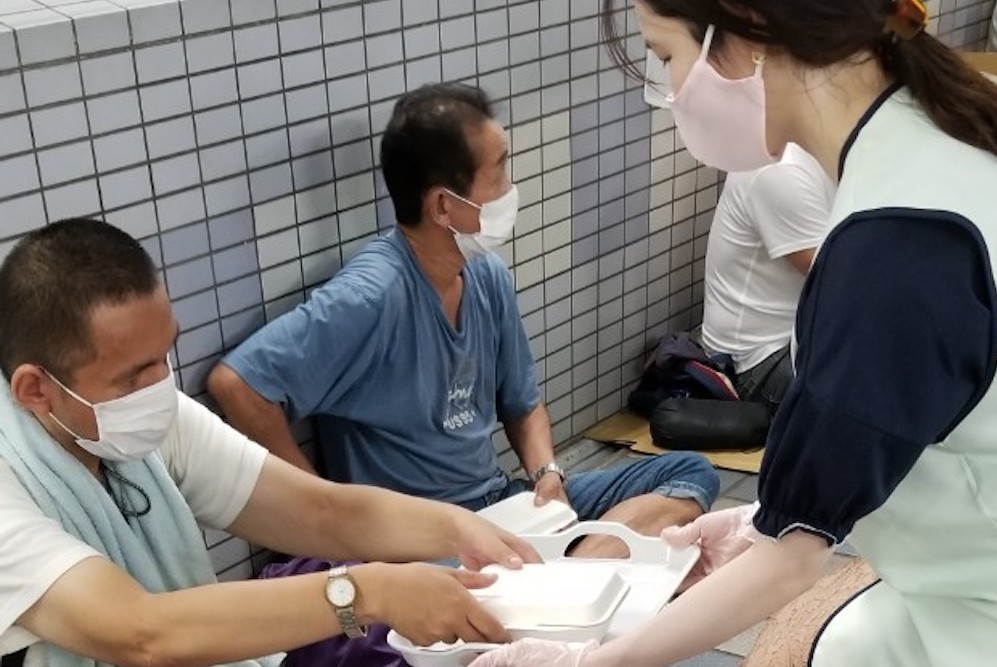
No one will be left behind: Foodbank Yokohama brights the future in Yokohama
- On 2020/10/1
Food waste is one of the biggest social issues that should be dealt with in the world. According to the government of Japan’s website, the amount of domestic food waste in 2019 was up to 6,430,000 tons, which means we waste 50 kilograms of food for each person per year in Japan.
Food Banks are here to solve this complicated issue. Food Banks are generally known as a non-profit organization that collects the food that would not be used or discarded along the food supply chain. They distribute those foods to homeless people and welfare facilities.
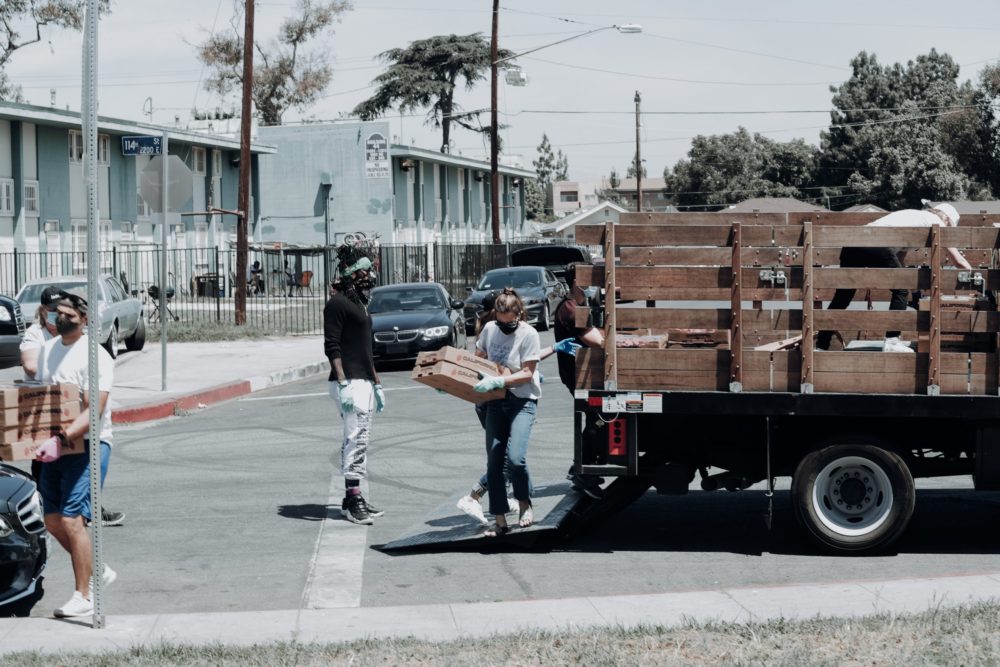
Today, we are going to walk you through the interview with Foodbank Yokohama.
The 2011 Tohoku Earthquake
──What made you recognize the issue?
“My volunteer experience from the 2011 Tohoku earthquake shocked me into starting helping other people. I used to be the type of person who is not interested in giving a hand to others. Even when the earthquake occurred, I was not really thinking of doing something for the victims since I had no relatives and friends in the Tohoku region. However, a friend of mine made me sign up for the Tohoku volunteer program together with them, and that became my first experience working for others.
What I saw in the shelters is very different from what I expected. There were some volunteer organizations from overseas, and I saw that they got close to the people in the shelter and handed supplies to them in person. On the other hand, some Japanese volunteer groups left the supplies in front of the shelter, even without coming into the building. I believe that Japanese people are very kind and heartwarming to try to find what they can do for the stricken areas and the people suffering when something happens, but the present system does not make it clear who and where all the donations would go to. Seeing the reality made me think of what “help” really means.
In my opinion, the first thing we need to do is to understand what is happening in the area and make sure what exactly they need. Before taking action, ask yourself if you can really be responsible for everything until your activity is done.”
Helping Each Other Is the Basis Of Human Society
──Please tell us your story after the Tohoku volunteer. How was Foodbank Yokohama founded afterward?
“After coming back from Tohoku, I signed up to be a volunteer at the soup kitchen in Tokyo, and I joined the activity twice a month to support homeless people. However, I felt hopeless because homeless people’s issues looked very complicated and even unsolvable. I could not stop questioning why they had to be homeless. That question led me to the mission that Foodbank Yokohama presently has, which is to prevent people from being homeless.
I founded Foodbank Yokohama in 2016. There are many homeless people in Yokohama, but I have noticed that some have their family or friends who would possibly help them. Still, they are hesitant about telling their family and friends that they are homeless. I was very shocked by the fact because I trust helping each other is the basis of human society. We need to get that original theory back to our culture.”
Machitomo-San
──What kind of activity do you usually do for homeless people?
“We call homeless people in Yokohama Machitomo-san (machi = town, tomo = friends.) A Chinese restaurant “Santoka” in Naka ward willingly helps us provide meals to machitomo-san, so we usually make bento-box and go hand them to machitomo-san every month.
Our ultimate goal is to help machitomo-san recover so that they get back to normal life. For the purpose of that, we truly think that communication is the key. They need to encourage themselves and ask for help, even if that is pretty much embarrassing. What Food Bank Yokohama can do is to listen to them and make them take a step.
Having said that, we are not their family or friends who would always be there with them in the future. The ideal is to make the whole supporting system look like a boiled egg. York is their family, and egg white is volunteers and other supporters such as Food Bank Yokohama and the outer is ordinary society.”
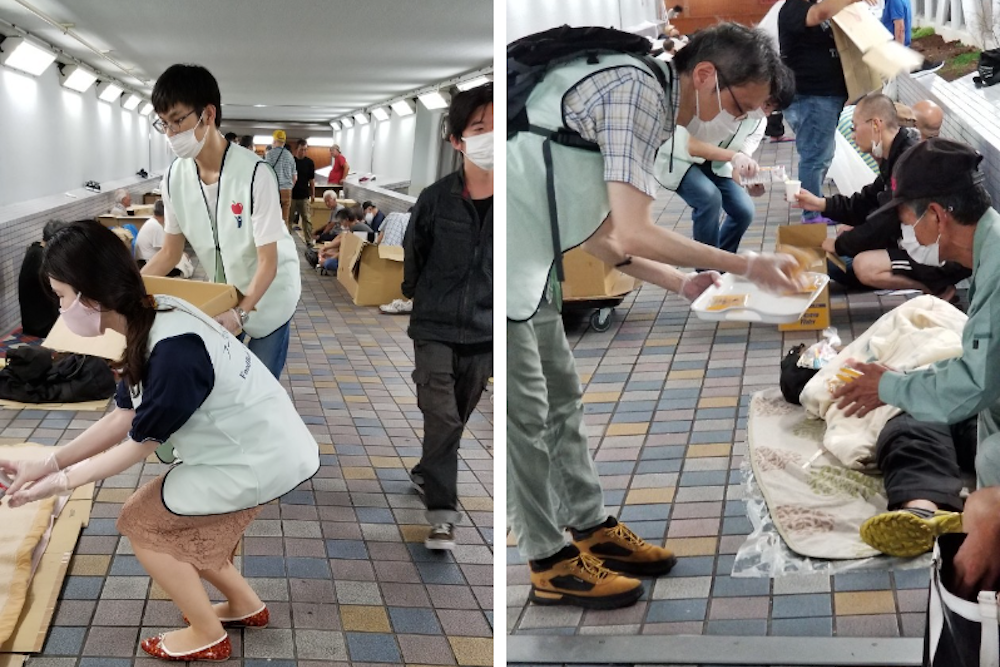
Support Both Physically and Mentally
──Are there anything else that you are currently working on besides supporting machitomo-san?
“We have various activities for children in Yokohama too. The rich-poor divide is becoming greater, and the issue of poverty sometimes affects their children beyond generations. We need to stop this tendency. I learned from machitomo-san that there are some occasions where people cannot ask others for help, and I think there are children in the same situation.
One of the activities that we provide for those children is an e-Learning program. It is becoming very common in Japan for children to go to a cram school or have a personal tutor, but those things are not what every child can do. Some children are very passionate about studying, but they cannot reach the opportunity, so we invite those children who are eager to study. We actually see some of them study very hard for hours every time they come to an e-Learning activity.
We are always trying to see what they have experienced with us, not the result they get, such as test scores or grades. It is because we want them to improve their self-esteem. Sometimes they are not confident or feel helpless because of their family environment and background, but they should always believe in themselves no matter where they were born.
What is most important for us is communicating with children in person because we want to support them both physically and mentally in the same way as we do for machitomo-san. We trust communication with others helps you a lot, especially when you are bothered by something and do not know how to make yourself feel better, so we try to listen to them as much as possible. And sometimes, we even invite a monk so that they feel more comfortable talking about their issues. We know that it is not that you can always speak up freely to anyone. We hope to become one of them who you can always come up and talk to when you have a hard time opening up yourself to people close to you. This is the reason why we do not physically go to support children, but we ask them to come and briefly have fun at our base.”
Support by Local People
──There seems to be many people who need help. How Do you get food and other supplies?
“Thankfully, we have gotten so much support from local people. In 2019, We received over 300 packages of food and supplies from private individuals and local companies. Surprisingly, some local companies sent us more than 100 or even 1000 packages of food that are still edible but would be discarded along the food supply chain. We cannot thank them more.”
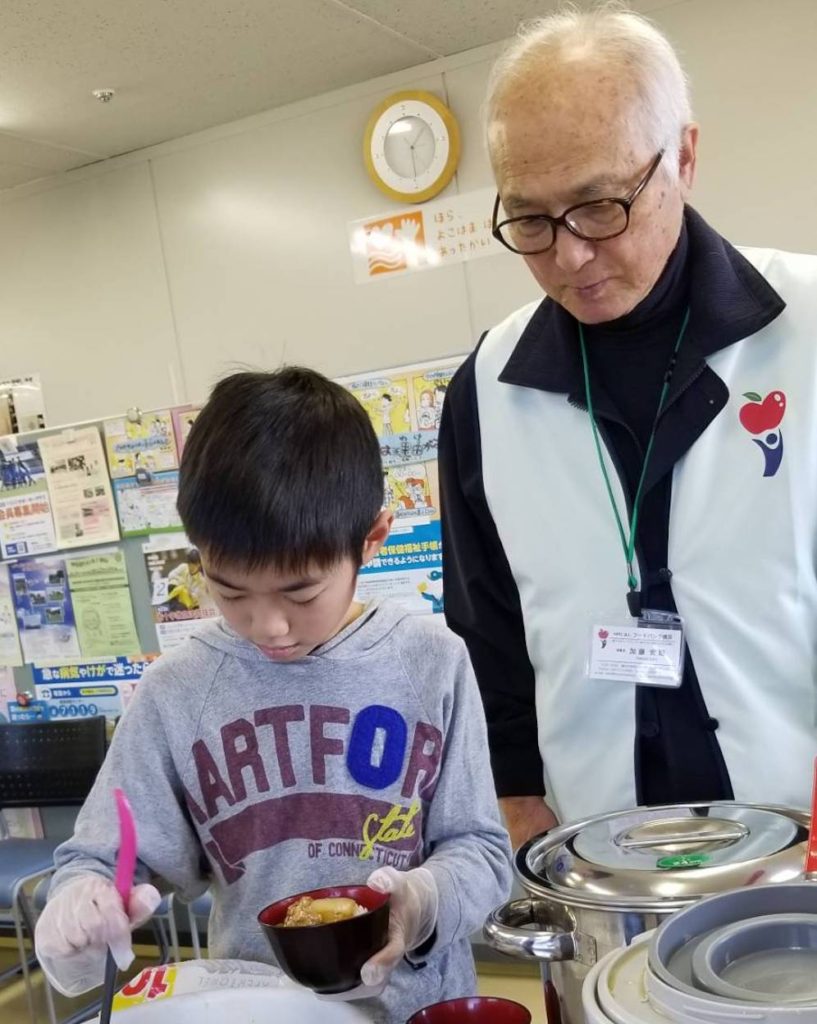
“We have heard one interesting story from an all-you-can-eat BBQ restaurant in Yokohama. They have a rule that customers who left their food need to pay extra for their leftovers. The rule’s purpose is to avoid food waste increasing, so they usually send that money to Food Bank Yokohama as a donation. However, none of the customers wanted to pay extra for their leftovers. Then, the restaurant made a very smart change. When they started announcing that the money was going to be used for homeless people and children through Food Bank Yokohama, some of the customers were willing to pay extra for the sake of people who are suffering. That is very sweet of them!”
Future Vision For Post Coronavirus World
──How has Food Bank Yokohama been affected by the new coronavirus outbreak?
“We are still trying to find what we can do during this tough time. We are recently getting about 5 times as many messages from people who need help as we used to since the unemployment rate is growing because of the pandemic. On the other hand, companies seeking to do something for society are sending us many messages asking what they can do. We want to connect those who need help and those companies that want to help, but social distancing and emergency quarantine order prevent us from continuing what we have been doing. Unfortunately, most of the activities have been canceled or postponed.”
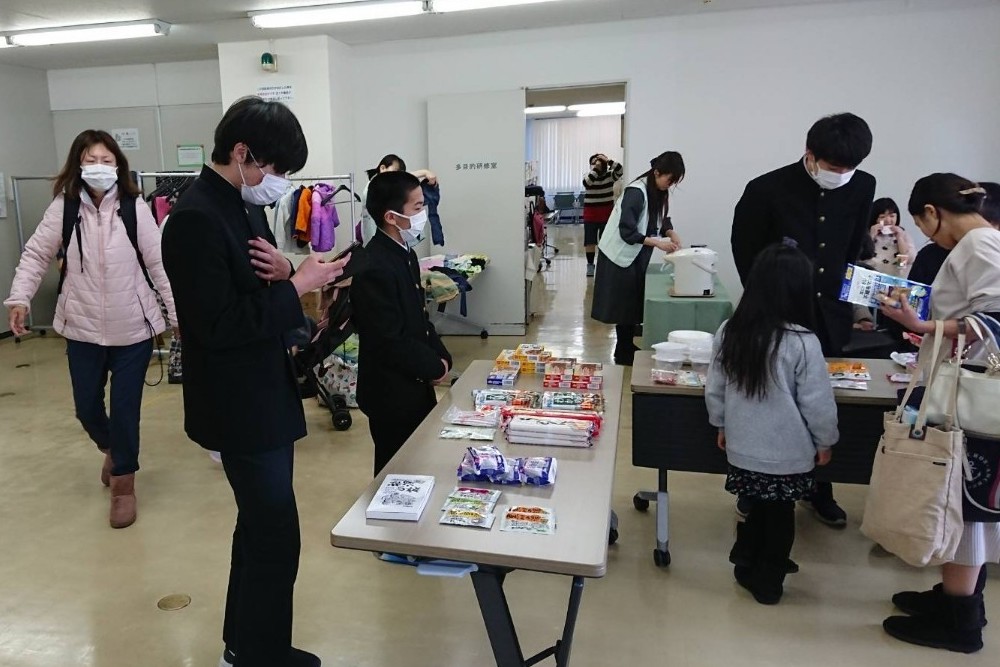
──How are you managing that obstacle?
“Even so, we need to accept and adapt to the present situation, so Food Bank Yokohama is currently trying to have some new programs such as to make e-learning available online and to arrange a new food delivery system so that we maintain required social distancing. However, our knowledge is not enough to develop all the ideas that we have come up with. We need help too. I hope someone would give us a hand, and we would be able to help each other and work for Yokohama together.”

Make Yokohama Better Together
──Please give us a shout out to people in Yokohama.
“We very much appreciate all the support that people have given us. I still remember the time when we first started Foodbank Yokohama. We did not have enough supplies at that moment, so we gave the children some snacks that we had bought from a supermarket. Thanks to the supporters, we are now getting close to our motto, “no one will be left behind.” We will keep doing our best, so please continue supporting us and hopefully help people together to make Yokohama better.”
【Website】Foodbank Yokohama (in Japanese)
【Reference】Public Relations Office-Government of Japan (in Japanese)


